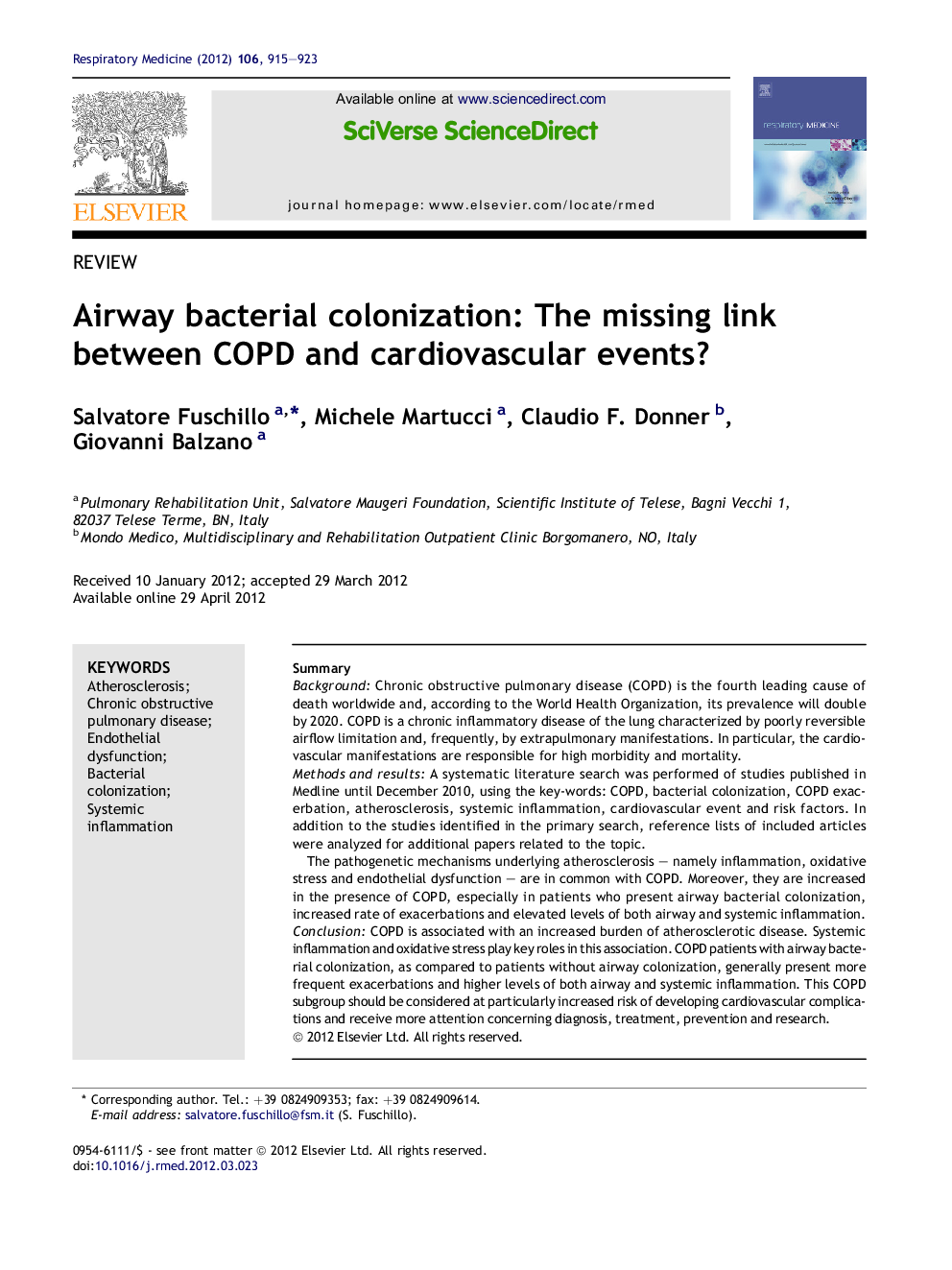| Article ID | Journal | Published Year | Pages | File Type |
|---|---|---|---|---|
| 4210838 | Respiratory Medicine | 2012 | 9 Pages |
SummaryBackgroundChronic obstructive pulmonary disease (COPD) is the fourth leading cause of death worldwide and, according to the World Health Organization, its prevalence will double by 2020. COPD is a chronic inflammatory disease of the lung characterized by poorly reversible airflow limitation and, frequently, by extrapulmonary manifestations. In particular, the cardiovascular manifestations are responsible for high morbidity and mortality.Methods and resultsA systematic literature search was performed of studies published in Medline until December 2010, using the key-words: COPD, bacterial colonization, COPD exacerbation, atherosclerosis, systemic inflammation, cardiovascular event and risk factors. In addition to the studies identified in the primary search, reference lists of included articles were analyzed for additional papers related to the topic.The pathogenetic mechanisms underlying atherosclerosis – namely inflammation, oxidative stress and endothelial dysfunction – are in common with COPD. Moreover, they are increased in the presence of COPD, especially in patients who present airway bacterial colonization, increased rate of exacerbations and elevated levels of both airway and systemic inflammation.ConclusionCOPD is associated with an increased burden of atherosclerotic disease. Systemic inflammation and oxidative stress play key roles in this association. COPD patients with airway bacterial colonization, as compared to patients without airway colonization, generally present more frequent exacerbations and higher levels of both airway and systemic inflammation. This COPD subgroup should be considered at particularly increased risk of developing cardiovascular complications and receive more attention concerning diagnosis, treatment, prevention and research.
